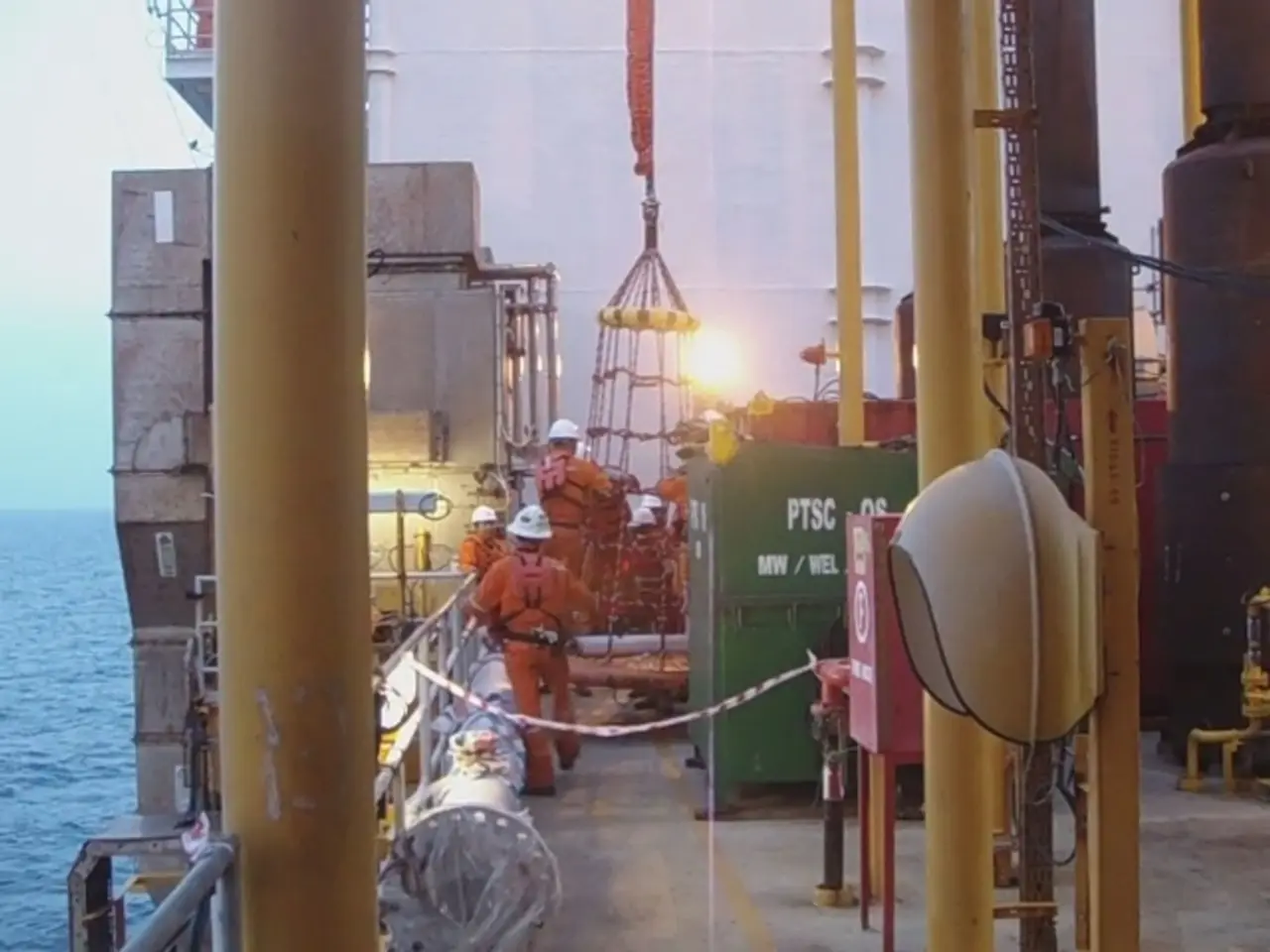Collision at Cuxhaven Port leads to oil spill due to cracks in the ship
In the North Sea harbour area of Cuxhaven, Germany, an oil spill incident has raised concerns about the potential long-term impacts on marine and coastal ecosystems. The spill, estimated at approximately 6,000 litres, followed a collision between the 69-metre long tanker ship, the "Capella," and the 44-metre long offshore supply ship, the "Coastal Legend."
The immediate ecological consequences of the spill include contamination of the water surface and shoreline, which can harm fish, seabirds, and benthic (seafloor) organisms. The harbour area, being a zone of active shipping and offshore operations, often hosts diverse species, all vulnerable to oil pollution. Long-term effects could include disruption of food chains, loss of habitat quality, and reduction in reproductive success of affected marine species.
Experts warn that oil residues can persist in sediments and biota, leading to chronic impacts. Greenpeace's expert for crisis response expects that if the oil is not pumped out quickly enough, it could accumulate in harbour sediments and release pollutants for years. Oil also prevents the exchange of oxygen between water and air, threatening to suffocate planktonic invertebrates.
Authorities and environmental groups, including Nabu, have called for better equipping emergency services, introducing a compulsory pilotage system in heavily trafficked sea areas, and banning highly toxic oils in shipping. Lower Saxony's Minister for the Environment, Christian Meyer, expressed gratitude for the swift intervention of the salvage command and emergency services but also stated that the risk of accidents is growing with increasing maritime traffic along the North Sea coast.
Currently, the salvage command is managing the operations, and emergency services are using protective masks to avoid inhaling fumes. A special oil recovery ship and an oil-clearing aircraft are in action, monitoring for parts of the oil entering the Elbe. The emergency services have removed approximately 80 cubic metres of oil-water mixture from the water surface.
However, the work to remove the oil from the water continues, and an end is not yet in sight. Greenpeace expects significant damage following the incident in Cuxhaven, and the Nature and Biodiversity Conservation Union (Nabu) speaks of a serious situation, demanding consequences for the causes of the accident.
Ongoing cleanup and ecosystem restoration initiatives will be critical to address these effects. Research efforts are increasing to restore marine biodiversity in the North Sea, such as those restoring oyster reefs, which are highly sensitive but vital components of coastal ecosystems and have been historically degraded by pollution among other factors.
While specific long-term monitoring or ecological restoration plans linked to this spill have not been detailed yet, given the scale and effects, they could be akin to other moderate North Sea oil pollution events documented in recent years. It is hoped that these initiatives will help mitigate damage and promote recovery in the North Sea harbour ecosystem.
- The incident has highlighted the potential long-term impacts of oil spills on marine and coastal ecosystems, particularly in the context of health-and-wellness and environmental-science.
- The science industry is concerned about the persistent nature of oil residues in sediments and biota, leading to chronic impacts on the ecosystem.
- Climate change and increased maritime traffic along the North Sea coast have elevated the risks associated with oil spills in the industry, necessitating attention in the area of energy and finance.
- Skin-conditions, such as those affecting marine species, could be negatively impacted by oil pollution, raising concerns in the field of medical-conditions.
- The collision between the "Capella" and the "Coastal Legend" has reminded us of the interconnectedness of industries like oil-and-gas, transportation, and automotive, and their collective impact on the environment.
- Weather patterns, particularly those affecting coastal areas, play a significant role in the dispersal and persistence of oil spills, making it a relevant consideration in sports and meteorological studies.
- As the cleanup and restoration initiatives progress, health-and-wellness, environmental-science, and the entire community must remain vigilant in their efforts to promote the health of the North Sea harbour ecosystem and prevent future oil spill incidents.




